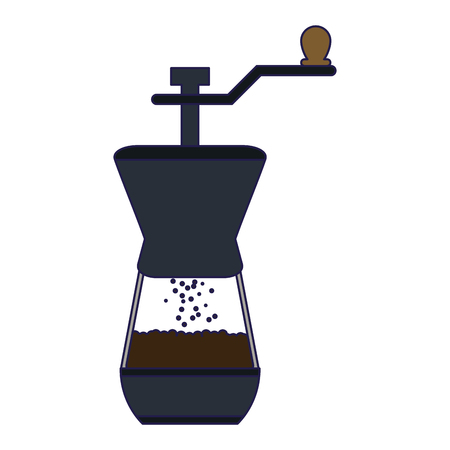Introduction to London’s Ethical Coffee Scene
London’s coffee culture has evolved far beyond the simple pursuit of a caffeine fix. In recent years, there has been a significant shift towards ethical and sustainable practices within the city’s speciality coffee scene. Local coffee houses are increasingly prioritising transparency in sourcing, fair trade relationships with farmers, and environmentally conscious operations. This movement is not just a trend but a reflection of the values held by Londoners, who are keenly aware of their global footprint and eager to support businesses that make a positive impact. For visitors, exploring London’s ethical coffee houses offers an authentic taste of the city’s progressive spirit—one where quality, community, and responsibility go hand in hand. Whether you’re a seasoned local or a curious traveller, understanding the principles behind your cup of coffee enhances both the experience and its broader significance.
2. What Makes a Coffee House Ethical and Sustainable?
In the heart of London, ethical and sustainable coffee houses are more than just trendy spots to enjoy a flat white; they represent a growing movement towards responsible business practices that benefit people and planet alike. Understanding what sets these establishments apart is key for any local or visitor aiming to make mindful choices. Below, we break down the essential criteria that define an ethical and sustainable coffee house in London.
Fairtrade and Transparent Sourcing
The foundation of ethical coffee begins with fairtrade sourcing. Local coffee houses committed to sustainability ensure their beans are ethically sourced from farmers who receive fair compensation, fostering better working conditions and empowering producer communities worldwide. Many cafés in London proudly display their direct trade partnerships, offering transparency from farm to cup.
Waste Management Practices
Sustainable coffee shops take waste management seriously, striving for minimal landfill contributions. This includes composting organic waste, recycling packaging, and even reusing coffee grounds for local gardens or beauty products. Such measures reduce environmental impact while supporting the city’s broader sustainability goals.
Eco-Friendly Packaging
Single-use plastics are becoming a thing of the past in progressive London cafés. Instead, you’ll find establishments using compostable cups, recyclable lids, or encouraging customers to bring reusable vessels. These efforts not only reduce plastic pollution but also inspire responsible consumer behaviour throughout the community.
Packaging Solutions Comparison
| Type | Description | Sustainability Rating |
|---|---|---|
| Compostable Cups | Made from plant-based materials; break down naturally | High |
| Recyclable Paper Cups | Easily recycled with standard waste streams | Medium |
| Reusable Mugs | Brought by customers; zero waste generated per use | Excellent |
| Traditional Plastic Cups | Difficult to recycle; high environmental impact | Poor |
Energy Efficiency Initiatives
A truly sustainable coffee house invests in energy-efficient equipment and renewable energy sources. Many London cafés have upgraded to LED lighting, installed smart meters, or even sourced their electricity from wind or solar providers. These actions not only lower operating costs but also contribute meaningfully to carbon reduction targets.
Community Engagement and Local Impact
The most authentic ethical cafés actively support their local neighbourhoods through various initiatives—be it hosting community events, partnering with local charities, or providing space for grassroots organisations. By fostering a sense of belonging and giving back locally, these coffee houses become integral threads in the fabric of London life.

3. Top Ethical Coffee Houses in Central London
Central London is a treasure trove of independent coffee houses that place ethical sourcing and sustainability at the heart of their operations. As a local, I’ve spent countless hours exploring cafés that not only serve exceptional brews but also demonstrate a steadfast commitment to fair trade, traceability, and eco-friendly practices. Here’s my curated guide to the standout spots leading the way.
Monmouth Coffee Company
A pioneer in London’s specialty scene, Monmouth champions direct trade relationships with growers. Their Covent Garden outpost is renowned for meticulous bean selection and small-batch roasting, ensuring both quality and transparency. The staff are eager to share stories behind each origin, fostering a genuine connection between cup and community.
Origin Coffee
Nestled in bustling Soho, Origin combines innovative brewing methods with strong ethical credentials. They prioritise long-term partnerships with producers and invest in sustainable farming initiatives abroad. Compostable takeaway cups and a zero-waste ethos further solidify their eco-conscious stance.
Kaffeine
This Fitzrovia favourite operates on a philosophy of responsible sourcing, collaborating with UK-based roasters who pay above-market rates for green coffee. Their seasonal menu features locally sourced milk and plant-based options, reflecting a holistic approach to sustainability that extends beyond just the beans.
What Sets These Cafés Apart?
Each of these independent establishments stands out not merely for superb coffee but for leadership in sustainable practice—from supporting regenerative agriculture to minimising single-use plastics. By choosing these cafés, you’re supporting businesses that care deeply about people and planet as much as they do about flavour.
4. Hidden Gems in Neighbourhoods Across the Capital
London’s thriving coffee scene extends well beyond its bustling city centre, with neighbourhoods such as Hackney, Brixton, and Camden quietly leading the way in ethical and sustainable café culture. These areas are home to independent coffee houses that not only serve expertly roasted speciality brews but also champion environmental stewardship, fair trade sourcing, and strong community values.
Neighbourhood Highlights: Sustainable Cafés Worth Discovering
While many visitors flock to well-known coffee chains, locals often seek out unique spots where ethical practices are woven into the very fabric of daily operations. Here’s a comparative overview of some beloved local favourites:
| Café Name | Location | Sustainability Focus | Unique Feature |
|---|---|---|---|
| Climpson & Sons | Hackney | Direct trade relationships with growers; compostable packaging | In-house roastery using energy-efficient equipment |
| Federation Coffee | Brixton | Sourcing beans from Rainforest Alliance certified farms; local milk suppliers | Collaborative space supporting local artists and events |
| The Fields Beneath | Camden/Kentish Town | 100% plant-based; zero single-use plastics policy | Pioneers of vegan pastries and eco-friendly takeaway options |
What Sets These Gems Apart?
Each of these cafés demonstrates a rigorous commitment to reducing their environmental footprint while maintaining high standards in cup quality. For example, Climpson & Sons employs precise roast profiles to optimise flavour without waste, reflecting a meticulous approach similar to artisan roasters across Europe. Federation Coffee’s transparent supply chain ensures traceability and fair pay for farmers, while The Fields Beneath has set a benchmark for zero-waste operations in London’s café landscape.
The Local Experience: More Than Just Coffee
A visit to these neighbourhood gems is more than just a caffeine fix—it’s an invitation to be part of London’s grassroots sustainability movement. From reusable cup incentives to educational workshops on ethical sourcing, these cafés foster a sense of connection and conscious consumption within their communities. Next time you’re exploring London, venture beyond the high street and discover how these local champions are brewing positive change—one cup at a time.
5. Brewing with a Conscience: What to Expect as a Customer
When stepping into London’s ethical and sustainable coffee houses, you’re not just ordering a flat white – you’re making a conscious choice that supports people and the planet. Here are some practical tips for navigating menus and embracing the city’s progressive coffee culture.
Deciphering Ethical Options on the Menu
Londonders are spoilt for choice, but not all brews are created equal. Look for clear indicators such as Fairtrade, Rainforest Alliance, or direct trade partnerships on the menu; these labels signal a commitment to transparency and better livelihoods for growers. Many local cafes also showcase single-origin beans or provide provenance details, allowing you to trace your cup back to its roots. Don’t hesitate to ask staff about their sourcing practices – baristas in ethical coffee houses are often passionate about sharing the story behind your coffee.
The Rise of Reusable Cup Culture
London’s eco-conscious scene has made reusable cups more than just a trend – they’re now part of daily life for many regulars. Most sustainable coffee shops offer discounts if you bring your own cup, and some even have in-house schemes where you can borrow or swap reusable mugs. KeepCups and similar brands are widely accepted, and it’s not uncommon to spot commuters with their favourite travel mugs in hand. Remember, bringing your own cup is one of the simplest ways to cut down on single-use waste without sacrificing your caffeine fix.
Supporting Sustainability Through Everyday Choices
Your influence as a customer goes beyond what you order. Opt for plant-based milks when possible – oat, almond, and soy milks typically have a lower carbon footprint compared to dairy. If there’s an option to ‘round up’ your bill for charity, consider supporting local community initiatives tied to sustainability or social justice. For those lingering over brunch or pastries, choose food items made from locally sourced or surplus ingredients whenever available.
Engage and Advocate
Finally, support doesn’t end at the till. Leave positive feedback for shops championing green initiatives, spread the word among friends, and encourage others to adopt similar habits. By making thoughtful choices each time you visit a café, you help foster a more responsible coffee culture across London – one cup at a time.
6. The Future of Sustainable Coffee in London
London’s coffee culture has always been dynamic, but as ethical and environmental considerations become ever more central, the city is forging a path that others aspire to follow.
Emerging Trends Shaping the Scene
From zero-waste cafes to plant-based milk innovations, London’s coffee houses are pushing boundaries. Compostable cups, reusable keep-cup incentives, and direct trade partnerships with origin farmers are now commonplace, reflecting a growing demand for transparency and accountability. Local roasters are also experimenting with lower-emission roasting technology and electric delivery bikes, making sustainability not just an add-on but a core business ethos.
Community Projects Making an Impact
The future is being shaped by grassroots initiatives: barista training schemes for disadvantaged youth, pay-it-forward coffee tokens for those in need, and urban composting collaborations with nearby allotments. Many independent cafés champion local art, host climate awareness events, or donate a portion of profits to reforestation projects in coffee-growing regions. These community efforts turn every flat white into a small act of positive change.
London as a National Benchmark
London’s approach continues to set benchmarks for ethical practice across the UK. Initiatives pioneered here—such as transparent supply chains, circular waste systems, and inclusive hiring policies—are inspiring similar movements from Brighton to Manchester. The capital’s diversity also means its coffee scene incorporates global perspectives on sustainability, ensuring that innovation remains at the heart of every cup.
The Road Ahead
As customers become increasingly informed and passionate about their choices, London’s coffee houses will continue to evolve. The next chapter promises even greater collaboration between roasters, café owners, communities, and farmers abroad. By embracing both local action and global responsibility, London isn’t just serving exceptional coffee—it’s brewing a brighter future for all who share in its ritual.

